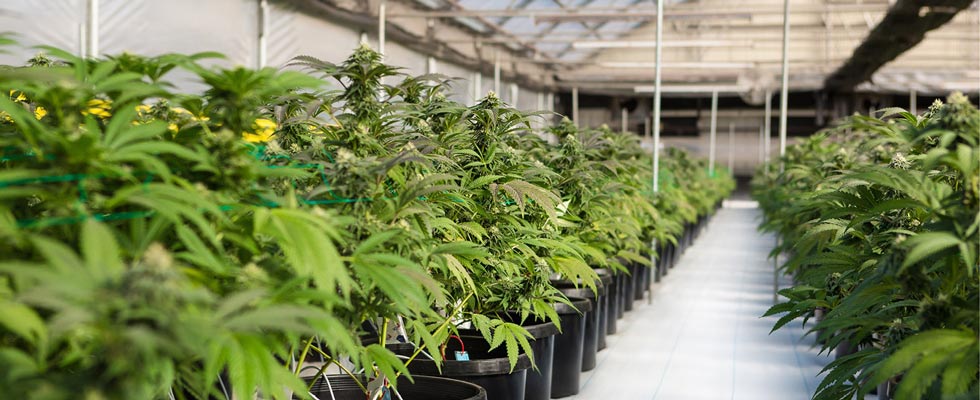
Hemp cultivation has experienced significant growth in recent years due to the rising demand for hemp-derived products such as CBD oil, textiles and industrial materials. As the industry expands, it faces challenges in finding sustainable and efficient energy solutions for hemp cultivation and processing. Propane, a versatile and clean-burning fuel, presents an excellent opportunity to bridge the gap between hemp farmers and their energy needs. In recent years, the National Propane Gas Association (NPGA) has put into place several projects that attempt to bridge the gap between the hemp and propane industries.
This article will highlight the advantages of propane usage for hemp farming, address the challenges involved and discuss potential solutions to promote its widespread adoption.
Steps Taken to Bridge the Gap
In 2020, NPGA created the Hemp Project, with a strategic plan to engage advocacy organizations, legislators, regulators and technical experts. Education was a primary focus of this plan, with the aim to inform the propane industry about the opportunities and demand for propane in hemp farming. I hosted a hemp webinar in late 2020, which played a crucial role in presenting this information to the industry at large.
During the 2022 NPGA winter board of directors meeting, I also moderated a panel discussion involving industry experts. The discussion highlighted market insights, potential regulatory frameworks and NPGA’s efforts to bridge the gap between the cannabis and propane industries. Panelists included Jeff Stewart, president of Blue Star Gas; Bruce Swiecicki, senior technical advisor at NPGA; and Lezli Engelking, president of the Foundation of Cannabis Unified Standards (FOCUS). Each provided valuable insights and expertise.
After the propane industry was aware of the current opportunities in the hemp sector, I hosted meetings with FOCUS, the National Hemp Association and state governments to provide information on propane’s role in hemp farming and the need for uniform regulations to ensure safe use of propane.
Advantages of Propane Usage for Hemp Farming
Propane offers several advantages to stakeholders interested in using it for hemp farming. First, it’s a cost-effective energy source compared to alternatives like electricity or diesel. Hemp farmers can benefit from lower fuel costs, enabling them to allocate resources more effectively and to enhance profitability.
Additionally, propane is versatile — capable of powering various equipment and machinery used in hemp farming, including irrigation pumps, generators and drying units. This versatility provides reliable and consistent energy throughout different stages of cultivation and processing. Moreover, propane is a cleaner-burning fuel, emitting fewer greenhouse gases and harmful pollutants. By using propane, hemp farmers can reduce their carbon footprint and contribute to a more sustainable agricultural sector, aligning with the increasing demand for eco-friendly practices in the hemp industry.
Challenges & Potential Solutions
Two major challenges in implementing the Hemp Project are proper training and streamlined regulatory frameworks. Hemp farmers who are new to agriculture or have no prior experience with propane require guidance and training on safe handling and usage. Educational initiatives, workshops and resources should be made available to ensure farmers can use propane efficiently and safely. Similarly, the propane industry needs to understand hemp farmer customs and protocols, making training and education a two-way process.
Clear and supportive regulatory frameworks play a vital role in facilitating propane adoption by hemp farmers. Regulatory bodies should establish safety standards and guidelines specific to energy usage in hemp farming, addressing concerns related to storage, transportation and emissions. To promote the widespread adoption of propane in the hemp industry, continued industry collaboration, training and education are recommended. Propane suppliers, hemp associations and research institutions should showcase the benefits and viability of propane for hemp cultivation and extraction.
Sharing success stories will build confidence and encourage more farmers and propane marketers to consider the opportunity. Comprehensive training programs tailored to the specific needs of hemp farmers should cover all aspects of propane usage — from equipment operation to safety protocols. Training sessions can be conducted at agricultural universities, extension centers and on-site hemp farms.
The NPGA Hemp Project continues to focus on education for all stakeholders, bridging the gap for gallon growth, providing reliable and portable energy for hemp farmers, and reducing greenhouse gas emissions by switching to energy-efficient, propane-powered motors. Resources on hemp farming and propane usage can be found on NPGA’s website under the “Membership Dashboard” or by contacting me, Twana Aiken, NPGA senior manager of industry affairs.


